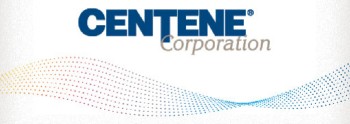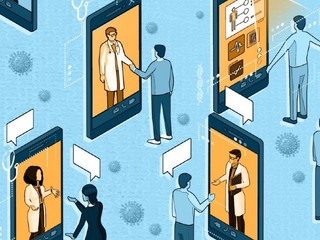
In a strange way, healthcare seems to be reverting back to a style that had gone out of fashion many years ago, with an increased amount of health taking place in the home. There are now around 12 million people who are now getting in-home care, from more than 33,000 providers, and last year the annual expenditures for home health care were projected to be over $72 billion.
This is thanks, in large part, to technology and, more specifically, to connected in-home devices that can easily collect and send data to a physician in real-time. This allows patients to be monitored remotely, without constant trips to the doctor, and for physicians to do more timely interventions based on patterns picked up by AI and machine learning.
In July, Vator, HP and UCSF Health Hub will be holding an event centered around these devices, and how they are affecting the healthtech space. Every week until then we will be doing a roundup of some of the news around in-home devices and what some of the major tech companies are up to in this space.
 StethoMe partners with MaQuestionMedicale and Home Doctor
StethoMe partners with MaQuestionMedicale and Home Doctor
StethoMe, a provider of a smart stethoscope, signed deals with telemedicine providers MaQuestionMedicale in France and Home Doctor in Spain to roll out its device in Europe.
The company will combine its smart AI wireless stethoscope with the MaQuestionMedicale and Homedoctor’s telemedicine platforms. StethoMe said it is also in discussions with other major telemedicine providers across Europe.
“Our team of technological and medical experts have devoted the last five years of R&D efforts to the creation of a smart wireless stethoscope,” Wojciech Radomski, CEO of StethoMe, said in a statement.
“At a time where medical services are under strain across the globe due to the COVID-19 pandemic, we believe the deals we have signed will contribute towards lessening the burden on healthcare systems and reduce the unnecessary spread of the disease.”
StethoMe has been awarded full certification from the EU for its device and AI algorithms.
Biofourmis acquires Gaido Health
Digital therapeutics platform Biofourmis agreed to acquire Gaido Health from Takeda Pharmaceuticals, a deal that expands Biofourmis’ portfolio in the oncology space. Gaido Health, a digital therapeutics company focused on the oncology market, was part of Takeda Digital Ventures, Takeda’s corporate technology investment and incubation arm.
Biofourmis has a digital therapeutics platform that collects and analyses data, which is then used to predict disease before it happens, improving patient health and outcomes. The company’s platform is called Biovitals, which consists, in part, of patient-facing components. That includes a device agnostic platform that can capture streams of data from wearables.
Gaido Health’s solution combines information on vital signs collected via remote monitoring in the home, patient surveys and analytics to detect early signs of complications in patients with cancer who have been recently discharged from the hospital. Gaido Health’s AI-based algorithms detect signs of complications to inform the clinician, enabling earlier interventions.
“Biofourmis’ digital therapeutics solution for oncology—now bolstered with this acquisition of Gaido Health—is based on an innovative approach that continuously monitors patients’ physiology biomarkers and symptoms, detects early signs of complications, and arms care teams with tools to intervene early to prevent medical crises, improve outcomes and lower costs,” said Kuldeep Singh Rajput, CEO of Biofourmis, in a statement.
“In addition to this strategic acquisition creating synergies for better remote monitoring of patients discharged from the hospital after cancer treatment, it will also mean better tools to manage patients who have a related diagnosis of cancer therapy-induced cardiotoxicity leading to heart failure, which is a dreaded complication,” Rajput said.
Gaido Health’s CEO Gary Manning will be joining Biofourmis as senior vice president of corporate development.

Medopad rebrands to Huma, makes two acquisitions
Medopad, a British healthtech company that integrates health data from existing hospital databases, patient wearables and other mobile devices so patients can be monitored remotely, changed its name to Huma.
The company also made two acquisitions, buying AI and wearable technology businesses BioBeats and Tarilian Laser Technologies (TLT).
Founded in 2012, BioBeats builds validated digital mental health interventions, including its flagship product, called BioBase. The mobile app, which pairs with biosensors and a wearable device, gathers data such as heart rate variability, to give users with a personalised wellbeing score. The company had raised $6.6 million in funding.
TLT is a medical technology company that developed a blood pressure monitoring wearable. It uses light modulation to detect motion, including continuous beat-by-beat flow motion forces that determine arterial blood pressure.
“We’ve been through quite a journey since Medopad started in 2011. Medopad has specialised in remote patient monitoring for patients with rare and chronic diseases. Over time, we’ve realised that health is about more than disease states; it’s about general physical and mental wellbeing go hand-in-hand. That’s why it makes perfect sense for us to evolve what the company stands for, what we offer, and why we do what we do. That’s why from today, Medopad is now Huma. Huma reflects our commitment to working with people, for people. The name Huma says that we’re for all of humanity,” Dan Vahdat, founder and CEO of Huma, said in a statement.
In addition, former UK Secretary of State for Health The Right Honourable Alan Milburn was appointed as chairman of the Huma board of directors.

Fitbit partners with Scripps and Stanford for COVID research
Fitbit partnered with The Scripps Research Institute and Stanford Medicine on research aimed at using Fitbit data to help detect, track and contain infectious diseases like COVID-19. They are also inviting other institutions to join and share key learnings with the research community.
The consortium brings together research already underway by both Scripps and Stanford. The Scripps Research Translational Institute recently launched DETECT, an app-based research program that will analyze participants’ wearable health data, such as heart rate, sleep and activity levels, to detect the emergence of influenza, coronavirus and viral illnesses.
The Stanford Healthcare Innovation lab launched the COVID-19 wearables study, which aims to establish whether data collected from wearables, including Fitbit devices, can be used to predict the onset of an infectious disease such as COVID-19 before the actual symptoms start. Researchers are collecting data such as heart rate, skin temperature, and blood oxygen saturation, among others.
“Fitbit is proud to work with Scripps Research and Stanford, which both have a long history of cutting-edge research in the area of wearables and infectious disease detection,” said James Park, co-founder and CEO of Fitbit, in a statement.
“By bringing together these and other leaders in scientific research, we hope to rapidly advance science and innovation in the fight against COVID-19 by promoting consumer participation in critical research efforts, supporting frontline healthcare workers with donated wearable devices, and sharing learnings quickly and openly across research partners.”
Fitbit users can access information on how to participate in these studies through the new COVID-19 Resource tab within the Fitbit mobile app.
 Centene launches initiatives to support the disability community affected COVID-19
Centene launches initiatives to support the disability community affected COVID-19
Medicaid Managed Care Organization Centene launched a series of initiatives designed to support the disability community affected by COVID-19, including establishing an emergency registry for members with long-term services and supports and creating onsite Disability Liaisons at COVID-19 super sites who will advocate for and assist with functionality for patients with physical disabilities.
Centene will also be addressing social determinants of health to support the needs of members with disabilities by doing things like augmenting its service coordination activities through peer supports and skills training for members with disabilities and providing grants to Area Agencies on Aging for groceries and meal deliveries for members.
Centene also said it will be matching funds in partnership with organizations, such as, workforce development boards and other safety net organizations, to train the direct care workforce and support unemployed individuals by preparing them for a career in health care.
Finally, it will be offering access to the Provider Accessibility Initiative COVID-19 Web Series to provide recommendations from experts with disabilities on how providers and organizations can deliver disability-competent care during the pandemic and future emergencies.
“As a national leader in managed long-term services and supports, we recognize the unique needs and preferences of persons with disabilities go beyond medical care,” Michael F. Neidorff, Chairman, President and CEO of Centene, said in a statement.
“These initiatives announced today reinforce our commitment to serving all of our members equally. They are designed to make sure we are supporting the disability community, including the families, caregivers, and providers that are on the frontline.”
(Image source: scmp.com)
















